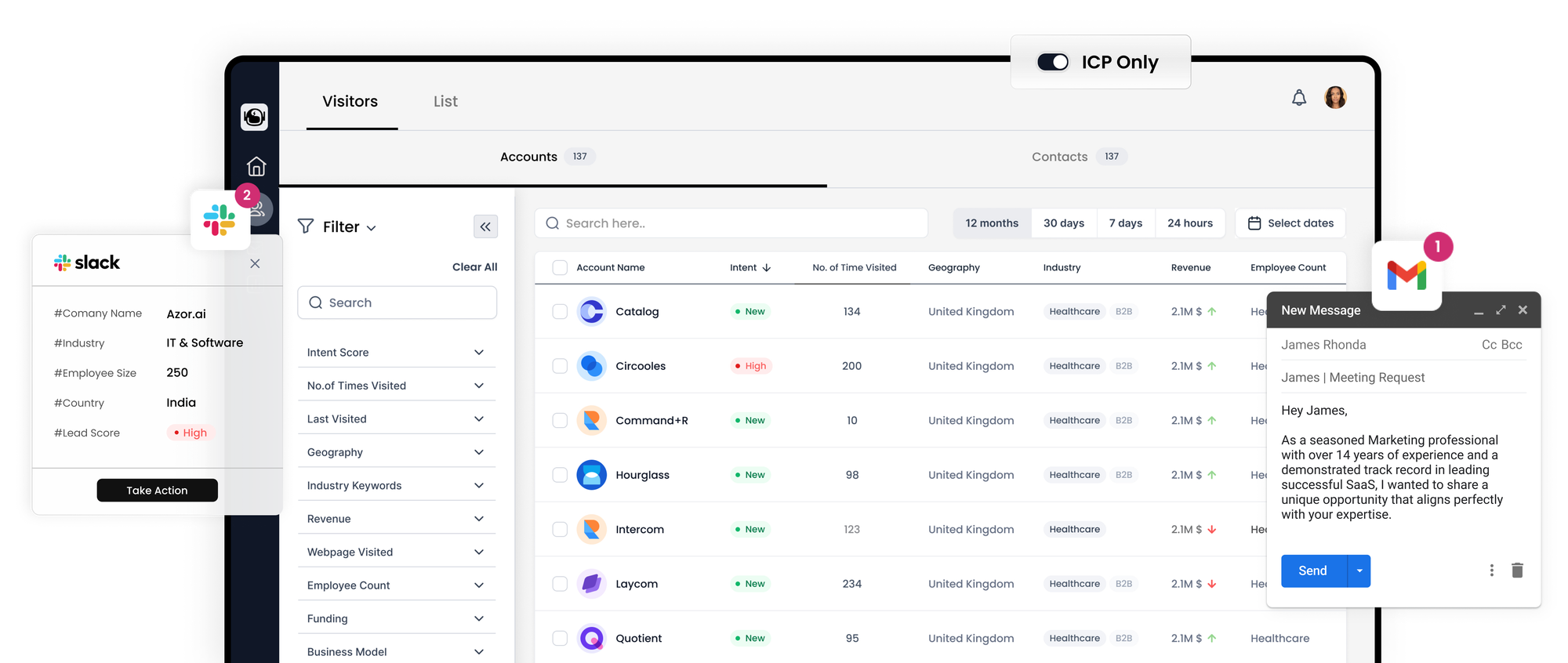The Role of a Demand Generation Manager in Modern B2B Marketing

In today's B2B market, the journey to purchase involves an average of 27 brand interactions, with minimal, if any, direct contact with sales representatives. This shift towards self-directed buyers, who rely on social media, websites, webinars, and online events for information, has prompted a surge in demand generation budgets. With buyers increasingly making decisions independently of sales pressure, cultivating demand becomes crucial in guiding their choice towards your brand.
This article delves into the role of a demand generation manager, their impact on an organization, and the essential qualities needed to bolster your sales pipeline.
Understanding the Demand Generation Manager's Role
Demand generation merges various marketing tactics and strategies to foster product or service awareness and stimulate interest.
A demand generation manager (DGM) oversees teams and campaigns aimed at building this awareness and interest. While this might seem like a typical marketing role, DGMs tackle challenges that go beyond traditional marketing concerns, such as lead development, nurturing, and conversion.
The distinction lies in the scope of their role. While marketers focus on raising brand awareness and generating leads for sales conversion, DGMs ensure consistent demand throughout the sales cycle.

The Nuances of Demand Generation
Demand generation, deeply rooted in inbound marketing, emerges from the internet-era buyer's propensity for self-research and informed decision-making. A significant 70% of buyers are well-informed about a product before engaging with sales teams.
Marketing teams heavily invest in lead generation campaigns, with a substantial portion of their budget dedicated to acquiring leads. However, the effectiveness of these campaigns is often questionable. For instance, an ebook on "SEO for beginners" might generate numerous leads, but only a small percentage may be marketing qualified leads (MQLs) with actual buying authority.
This gap, where traditional lead generation strategies focus only on early funnel stages, is where demand generation managers step in. They implement a holistic growth strategy, integrating marketing and sales efforts across the entire buyer's journey.
Positioning of a Demand Generation Manager
Typically part of the marketing department, a demand generation manager usually reports to the Chief Marketing Officer (CMO), Vice President of Marketing, or a director of demand generation. Their role involves planning and executing marketing programs, developing new strategies, creating market segments, and measuring ROI.
For example, Amanda Sibley from HubSpot focuses on generating top-of-the-funnel demand, working closely with a content team to produce assets and launch campaigns.
The key difference between DGMs and traditional marketing teams is their close collaboration with sales. They aim for a marketing strategy that aligns with and supports sales objectives, which requires a harmonious relationship between marketing and sales departments.
Aligned organizations, according to Marketo research, experience significantly higher conversion rates and revenue from leads. Demand generation managers play a pivotal role in achieving this alignment by understanding the target audience, crafting core messages, defining internal terminology, and establishing lead handling processes.
A Typical Day for a Demand Generation Manager
Effective communication is vital for demand gen managers, who often spend much of their day in meetings. A day might start with managing tasks related to ongoing campaigns, followed by strategy meetings, collaborations with content teams, and one-on-one sessions with team members.
Apart from meetings, demand gen managers also engage in hands-on activities like creating retargeting campaigns and editing. They also value team interactions outside of work, fostering a deeper understanding and connection with their colleagues.
Qualifications and Impact of a Demand Generation Manager
When Vital surveyed various professionals, including business owners, CEOs, sales representatives, marketing managers, IT practitioners, and agencies, the consensus was clear: they all sought an increase in leads. This unanimous need underscores the pivotal role of a demand generation manager (DGM), whose effectiveness in driving qualified leads through the sales pipeline is crucial for a company's success.
Recruiters prioritize candidates with innovative ideas and proven experience in demand generation. Franco Caporale, CEO of SaaSMQL and a former DGM, outlines the essential qualities for success in this role:
- Data-driven approach
- Comprehensive understanding of sales processes
- Proficiency in marketing automation systems
- ROI-focused mindset
- Expertise in content marketing
- Willingness to experiment and meticulously track results
The role requires a blend of fundamental and specialized skills:
Fundamental Skills:
- Proficiency in marketing automation tools for efficient campaign management across various channels.
- Familiarity with analytics platforms such as Google Analytics, as well as email and social media analytics tools, to collect and analyze data for strategizing and improving demand generation campaigns.
- Competence in using Excel for creating pivot tables and reports, crucial for communicating results to team members and stakeholders.
- Strong communication skills for daily coordination with sales and marketing teams and for presenting ROI in an understandable manner to stakeholders.
Specialized Skills:
- Ability to hypothesize what resonates with the audience and develop timely, effective campaigns.
- Flexibility and resilience to adapt strategies based on outcomes and modify KPIs as necessary.
Pathway to Becoming a Demand Generation Manager
Typically, one does not transition directly into a DGM role from an unrelated field. It suits mid-to-senior-level marketers with experience in demand generation or those who have shifted into specialized roles involving:
- Defining customer segments
- Developing marketing strategies
- Creating content
- Measuring marketing and sales metrics
According to Intricately, aspiring DGMs should ideally have:
- A bachelor's degree in marketing, business, or a related field
- 4-7 years of marketing experience, preferably including tasks similar to those in the DGM role
- Experience with CRM and marketing automation software
- Ability to measure the effectiveness of demand generation efforts at each funnel stage
Aspiring DGMs should document their contributions to successful demand gen campaigns, including metrics like lead increase, conversion rates, and website traffic. Obtaining endorsements from existing DGMs, marketing VPs, and demand gen directors can also enhance a candidate's profile.
Understanding how current DGMs and CMOs operate, including their communication styles and strategies, can provide valuable insights for becoming a standout candidate.
Compensation for Demand Generation Managers
The financial rewards for DGMs vary with experience:
- According to Payscale, the average base salary for a DGM is $84,876.
- Early career DGMs (4+ years) average around $77,522.
- Mid-career DGMs (5–9 years) can expect about $87,545.
- Experienced DGMs (10+ years) typically earn around $95,737.
- Late-career DGMs (20+ years) may earn up to $107,351.
Comparably's research suggests higher averages, with the most experienced DGMs earning up to $187,200. Transitioning from a demand generation specialist to a DGM role also promises a significant salary increase.
Conclusion
For businesses aiming to attract quality leads, stimulate growth, and enhance brand presence in a competitive landscape, a skilled demand generation manager is invaluable. They cultivate long-term relationships and refine customer experiences to enrich the sales pipeline with potential buyers, maintaining their engagement throughout.
Ideal candidates for DGM roles are experienced marketers with a track record in demand gen campaigns, leadership abilities, and persuasive skills, coupled with a deep understanding of customer behavior and marketing analytics. Such professionals are the assets companies seek to spearhead their demand generation efforts.
